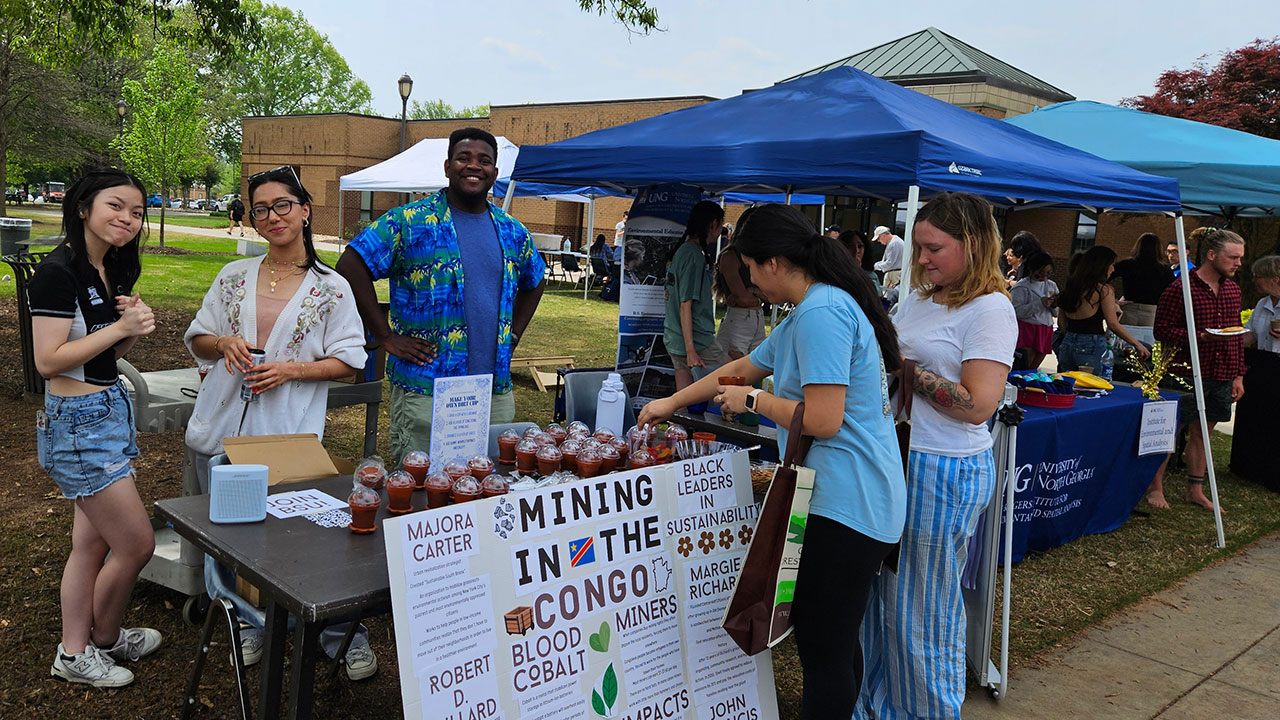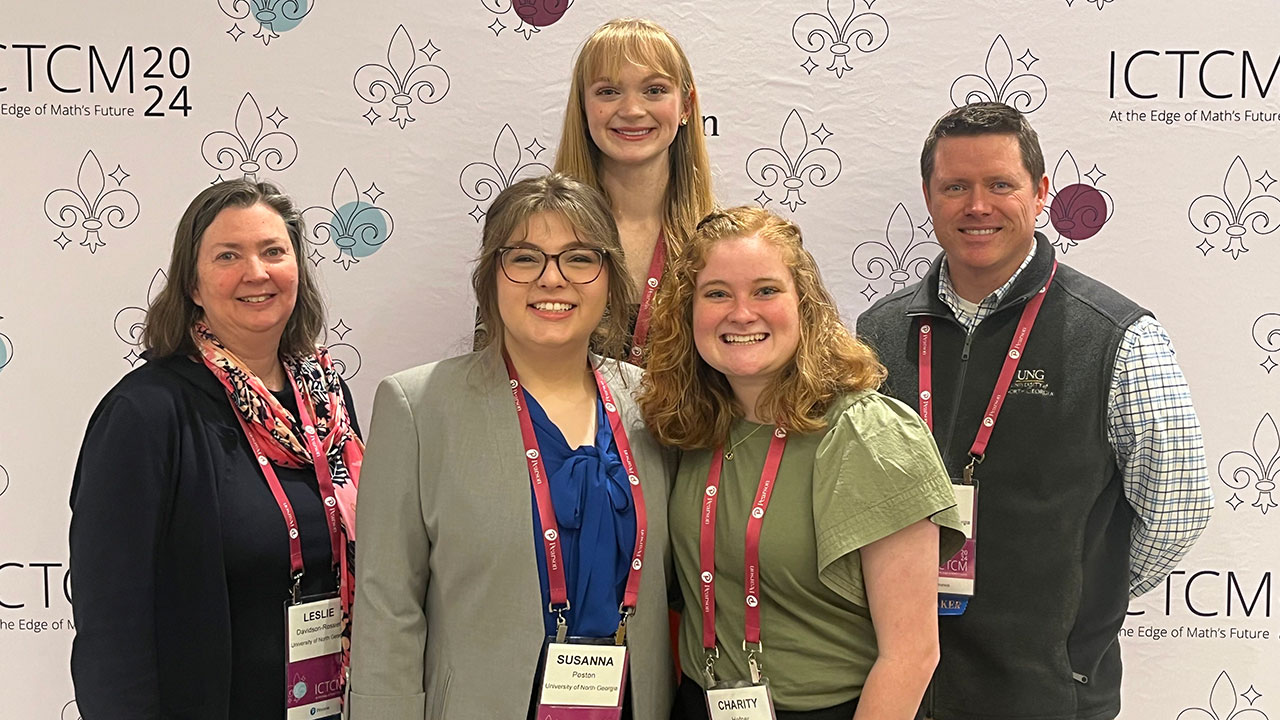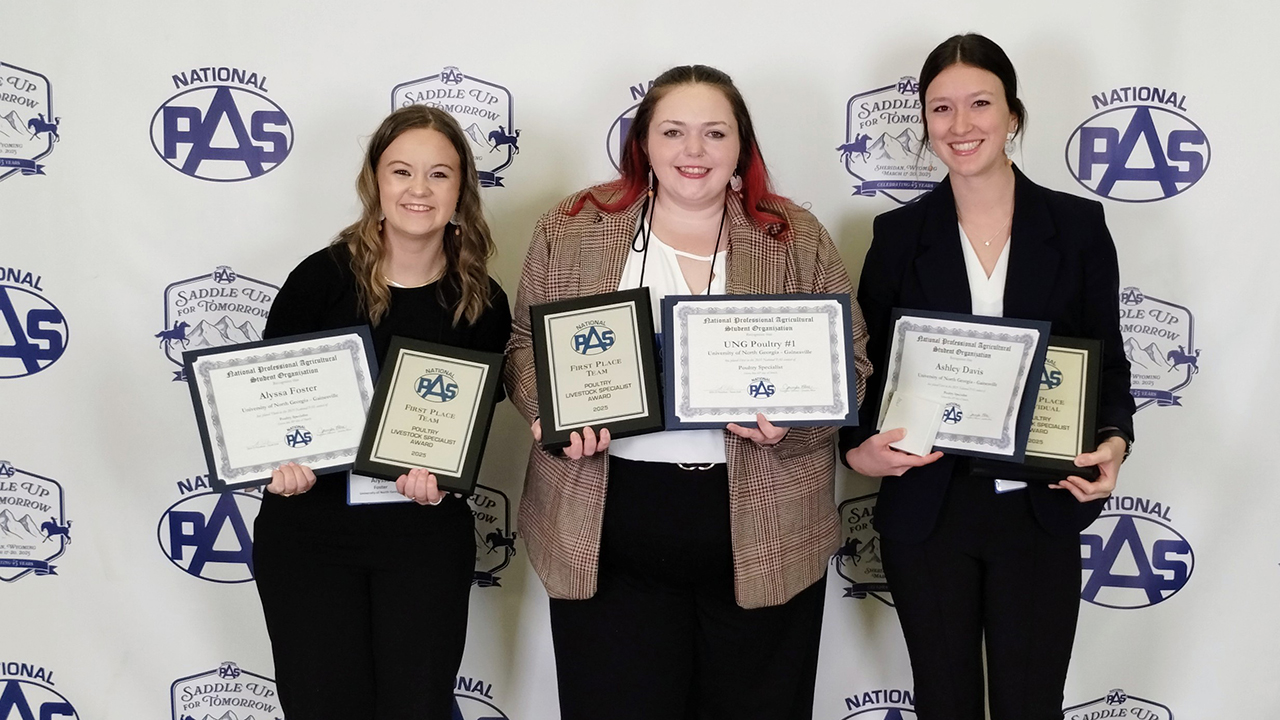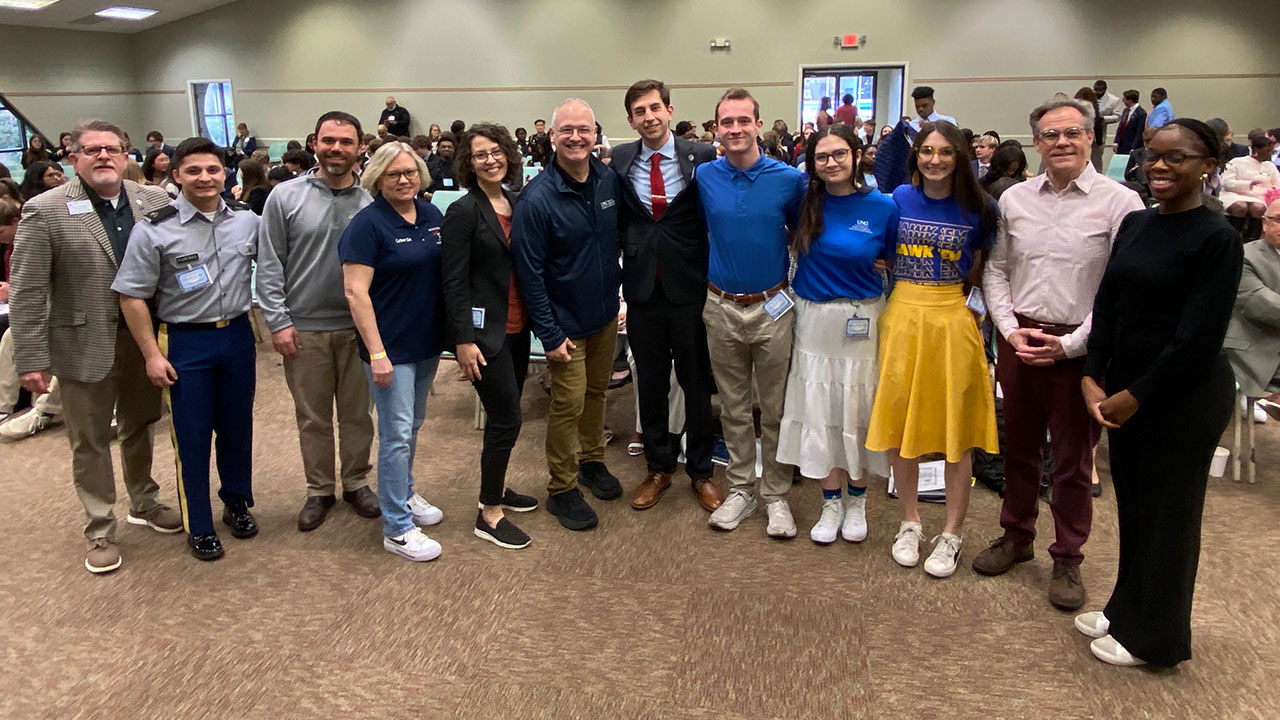Presidential awards fund faculty and staff research and projects

Article By: Staff
More than $250,000 will support various faculty and staff projects and initiatives in 2017 at the University of North Georgia (UNG), marking the fourth year of the Presidential Initiative Awards program, instituted by UNG President Bonita C. Jacobs in 2013.
"Since launching this program, we have awarded about $780,000 in support of more than 125 professional development, research and innovation projects across our campuses," Jacobs said. "These awards are a key investment in UNG faculty and staff, and the knowledge and expertise gained, the improved practices, and the resulting initiatives have significantly enhanced the educational experience of our students. This year's awards represent a new investment of $255,000, and I know the selected proposals will further contribute to academic excellence and student success at UNG."
There are three types of awards available through the program:
- Presidential Semester Incentive Awards - recipients receive a full semester release from teaching and service, plus funding support of up to $12,000 each
- Presidential Summer Incentive Awards - projects receive up to $10,000 each to support focused and meaningful research, or scholarship and creative activities during the summer semester
- Presidential Innovation Awards - projects receive up to $5,000 each to support full-time faculty and staff members in interdisciplinary and/or cross-functional collaborations or individual pursuits focused on innovations and partnerships to promote implementation of best practice models
"Often, collegiate faculty have projects or ideas that just can’t get off the ground without a boost, or there are initiatives that can reach a whole new level with a bit of financial support," said Dr. Jon Mehlferber, professor of visual arts, who received a Presidential Innovation Award in 2014 that allowed him and Dr. Terrie Millard and Alison Alhedeff of the Department of Physical Therapy to lead a graduate research project using 3-D printing to create cost-efficient devices designed to help children with disabilities assimilate into more activities. "Our award in 2014 helped produce very successful outcomes, and many children in our community are still benefiting from the devices we were able to create."
The 2017 awards feature a wide range of disciplines and projects, including a proposal from Dr. Susan Hurley of UNG's Department of Clinical Mental Health Counseling and Dr. Mark Griffin of the Department of Psychology to partner with The South Enotah Child Advocacy Center.
"The South Enotah Child Advocacy Center provides a wonderful opportunity to coordinate efforts and promote collaboration between law enforcement, medical, judicial, and social service agencies during sexual abuse investigations involving children. This collaboration involves teamwork to ensure the children are interviewed only once rather than by each agency requiring testimony or evidence, and other steps are taken as well to reduce the trauma experienced by the victims," Hurley said. "However, no facilities of this kind exist in Lumpkin or White counties, and driving these children north to Blairsville to the closest South Enotah facility only worsens their trauma. We realized if we could create a facility here, we could share it with White County and provide a very important service."
The group is now sharing UNG's Clinical Mental Health Counseling Center with South Enotah. With the center's existing technology, they can record interviews so they may be shared with other parties, while the center provides counseling to the children and their families. The Presidential Innovation Award will enable Hurley and Griffin to hire a graduate assistant for coordination and research, as well as providing supplies for the children and supporting the center in becoming a certified child advocacy center.
Dr. Katayoun Mobasher from UNG's Lewis F. Rogers Institute for Environmental and Spatial Analysis wants to help students with visual and physical disabilities who have difficulty with some facets of geology courses, such as field studies. She is very excited about the possibilities made possible through the Presidential Semester Incentive Award she has received.
"I realized that some things in these courses are completely inaccessible to some students, particularly students dealing with difficulties in sight or movement. Study in the field is a big part of geology, so I decided to develop a virtual field guide with sketches, videos and other materials for these students," Mobasher said. "Once this and other materials have been developed, I am hoping to translate the products to other disciplines. The virtual guide is already underway with mapping and 3D modeling, and once the award officially begins this fall, we will be able to access more materials to put on the finishing touches."
View the 2017 Presidential Awards (PDF) for a full list of the awards and their recipients.



